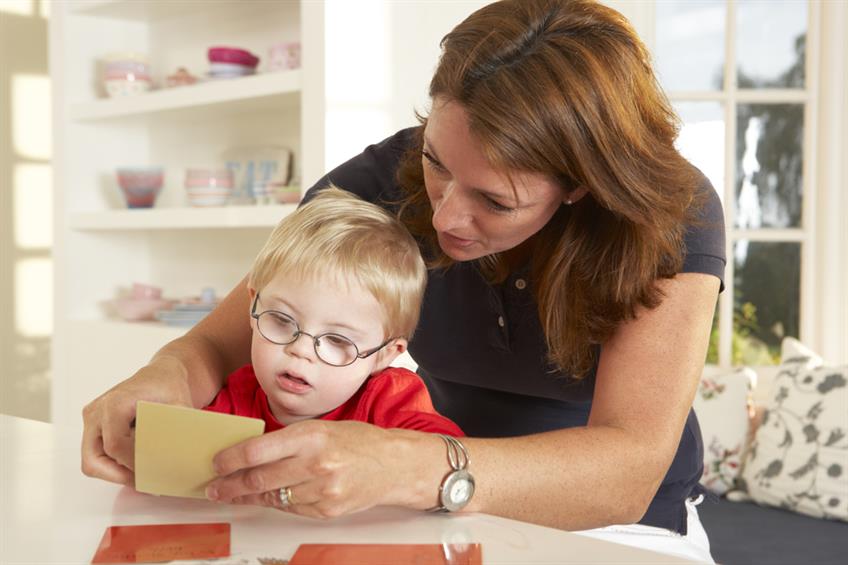Blog Layout
Speech Disorders in Children

Articulation:
An articulation disorder is when someone has difficulty producing sounds or sound sequences, such as saying "th" for "s" sounds. They may, for example, say "thun" for "sun". For a checklist of Typical Ages for Sound Acquisition Click Here.
Phonology:
A phonological disorder is when a child has difficulty learning and using rules for sounds and sound sequences, such as deleting all final the consonant on words. An example of this would be saying "ca" for "cat" and "ba" for "back".
Motor Speech Disorders:
This is a communication disorder where children have a hard time saying sounds, syllables, and words. It is not caused by physical reasons, but because the brain has problems planning to move the body parts needed for speech. The child knows what he or she wants to say, but his or her brain has difficulty coordinating the muscle movements necessary to say those words. One type of motor speech disorder is Childhood Apraxia of Speech (CAS). A child with apraxia may have inconsistent errors (especially when repeating a word), a limited number of sounds that can be made correctly, and unusual rhythm (prosody). They typically can understand more language than can be produced.
Voice Disorders
A voice disorder may be present when a child’s voice is noticeably different from others the same age and gender. They may have a harsh or hoarse-sounding voice, or a voice that is too high, low, loud or nasal. Poor voice quality may make it difficult for a child to communicate effectively and they may lose self-confidence, concerned with how other people see them. People with voice disorders often complain that their voices tire easily.
Voice Disorders Can Be Caused By:
- Vocal Abuse (Yelling, Screaming, Talking Loudly, Frequent Crying)
- Vocal Nodules (Growth on the Vocal Cords)
- Chronic Throat Infections (Laryngitis)
- Reflux
- Other medical conditions
- Physical differences in the body parts used for voice.
A Speech-Language Pathologist can assess your child and work with you to develop a therapy plan that includes vocal health and training in proper voice use.
Stuttering
Stuttering (disfluency) is when speech is broken up by the repetition of sounds or words, or even blocks where no sound is coming out at all. It is a communication disorder where the rate of flow of speech is interrupted. Stuttering is usually unpredictable and can be different from day to day and in different situations. Many preschoolers go through a period of normal stuttering during times of rapid language development. For most of them, it will resolve on its own, but for some, it can lead to long-term issues.
Children who stutter can have difficulty in school and may feel anxious about speaking in front of others. A Speech-Language Pathologist works with children, young adults, and adults to help them with their stuttering by developing strategies and exercises to minimize the interruptions during speech, and providing support to address any emotional or social concerns.
If you have concerns about your child’s speech, speak to your health care practitioner or Contact Our Office to arrange for an assessment with one of our qualified speech-language pathologists.
Related Posts

By info
•
26 Sep, 2019
Babies start to communicate long before they start speaking. Babies use smiles, giggles, crying, gestures, etc. to communicate their needs long before they start using language. To be able to understand early language delays, it’s important to understand the language milestones that every child goes through for the first two years.

By info
•
25 Sep, 2019
Development of Language: There are many factors that affect a child’s language development ranging from early learning experiences, their physical development, to social interaction. It can also be influenced by a developmental delay, hearing impairment, genetics, or autism. Children with language delays or disorders may also have difficulties with reading, spelling and school subjects, so early assessment and treatment (intervention) is important.
Get in Touch
Contact Us
Thank you for contacting us.
We will get back to you as soon as possible.
We will get back to you as soon as possible.
Oops, there was an error sending your message.
Please try again later.
Please try again later.
Our Partners
-

Slide title
Write your caption hereButton -

Slide title
Write your caption hereButton -

Slide title
Write your caption hereButton -

Slide title
Write your caption hereButton -

Slide title
Write your caption hereButton -

Slide title
Write your caption hereButton -

Slide title
Write your caption hereButton
Site Links
Creative Therapy Associates
Our team specializes in speech and language therapy, and occupational therapy for children, adults, and seniors. Our offices are in Thunder Bay, Ontario, but we travel to communities in Northwestern Ontario.
© 2024
All Rights Reserved | Creative Therapy Associates and Creative Therapy Autism Centre
Terms | Privacy | Patient Bill of Rights (PDF)

